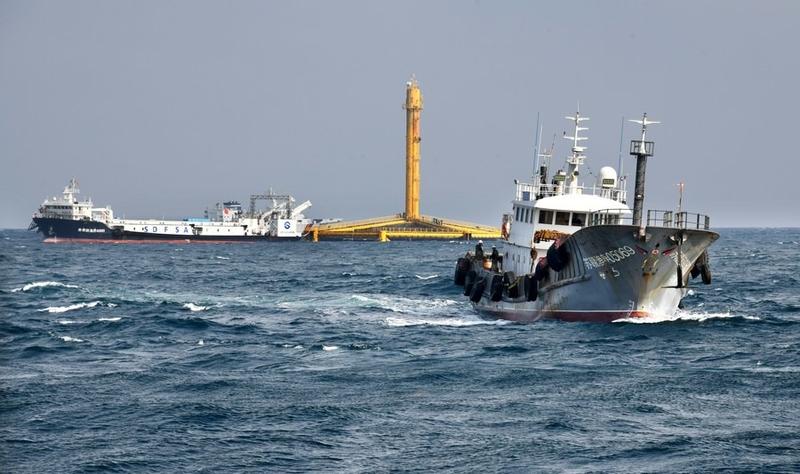 A fishing vessel (front) helps to harvest Atlantic salmons at a fish farming experimental area of Qingdao, East China's Shandong province, June 7, 2022. (PHOTO / XINHUA)
A fishing vessel (front) helps to harvest Atlantic salmons at a fish farming experimental area of Qingdao, East China's Shandong province, June 7, 2022. (PHOTO / XINHUA)
Courts have stepped up efforts to safeguard national marine rights and interests, protect the marine ecology and environment and promote the development of a superior maritime economy.
Between 2018 and 2021, maritime courts resolved 133,309 disputes, 10,611 of which involved foreign parties, according to a report on China Maritime Trial that was released by the Supreme People's Court, the country's top court, on Monday.
Cases handled by China's maritime courts involved 100 countries and regions, including the Bahamas, the United States, Singapore, Germany and Denmark
Cases involved 100 countries and regions, including the Bahamas, the United States, Singapore, Germany and Denmark.
ALSO READ: Senior judge: China to step up judicial protection of IPR
During the three-year period, the Supreme People's Court issued a number of directives to improve the judicial system in this regard, including documents on compensation disputes arising from maritime natural resource and oil pollution damage by ships to strengthen protection of the environment.
Maritime courts also established judicial cooperation mechanisms with prosecuting authorities, public security departments and government agencies to protect the ecology and environment.
For example, maritime courts in Guangzhou, Guangdong province, Haikou, Hainan province, and Beihai, Guangxi Zhuang autonomous region, created a joint judicial cooperation platform for environmental protection and shared in the benefits.
This created an alliance from the Beibu Gulf to the Qiongzhou Strait and successfully helped resolve public-interest marine environment cases through online mediation and real life collaboration.
READ MORE: Guideline clarifies jurisdiction of foreign-related legal cases
Additionally, maritime courts dealt with cases involving cargo, integrated logistics and collisions to ensure the safety of shipping, maintain the stability of the international logistics supply chain and serve the development of the shipping sector.
Furthermore, the rights and interests of crew have also been protected through the promotion of the healthy and stable growth of the shipping industry, the report said.



